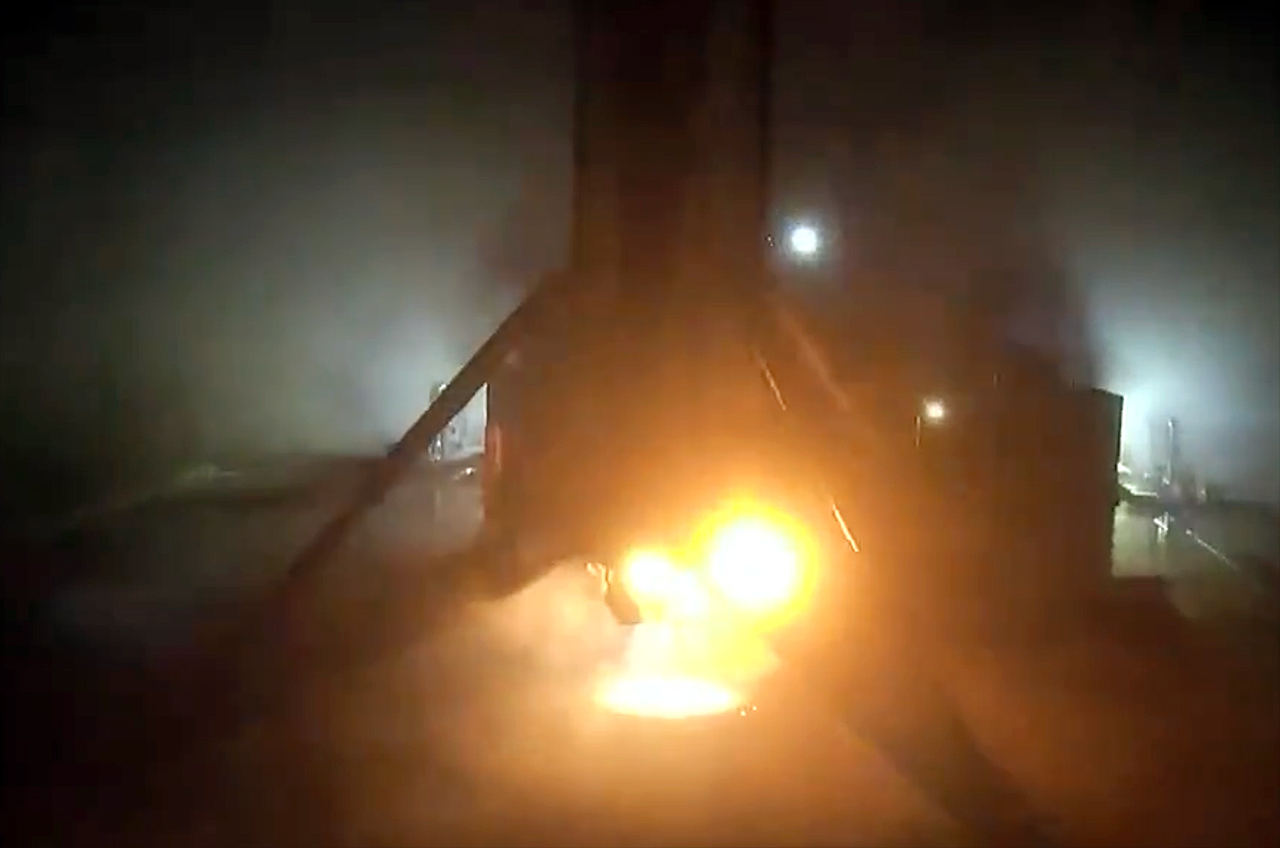A SpaceX Falcon 9 rocket launched 22 Starlink internet satellites to orbit this evening (Oct. 17).
The Falcon 9 rocket lifted off from Florida's Cape Canaveral Space Force Station today at 8:39 p.m. EDT (0039 GMT on Oct. 18).
Related: Starlink satellite train: How to see and track it in the night sky

The rocket's first stage came back to Earth, touching down at sea on the drone ship Just Read the Instructions about 8.5 minutes after launch. It was the 16th flight for this particular rocket's first stage — one shy of the company's reuse record, which was set just last month.
The 22 Starlink satellites, meanwhile, were scheduled to deploy from the Falcon 9's upper stage about 65 minutes after launch.
SpaceX has launched more than 70 orbital missions in 2023, most of which have been dedicated to building out the company's Starlink megaconstellation.
Starlink, which beams internet service down to customers around the world, currently consists of nearly 4,900 operational satellites, and the number keeps growing, as tonight's launch showed.
Get the Space.com Newsletter
Breaking space news, the latest updates on rocket launches, skywatching events and more!
Join our Space Forums to keep talking space on the latest missions, night sky and more! And if you have a news tip, correction or comment, let us know at: community@space.com.

Michael Wall is a Senior Space Writer with Space.com and joined the team in 2010. He primarily covers exoplanets, spaceflight and military space, but has been known to dabble in the space art beat. His book about the search for alien life, "Out There," was published on Nov. 13, 2018. Before becoming a science writer, Michael worked as a herpetologist and wildlife biologist. He has a Ph.D. in evolutionary biology from the University of Sydney, Australia, a bachelor's degree from the University of Arizona, and a graduate certificate in science writing from the University of California, Santa Cruz. To find out what his latest project is, you can follow Michael on Twitter.









